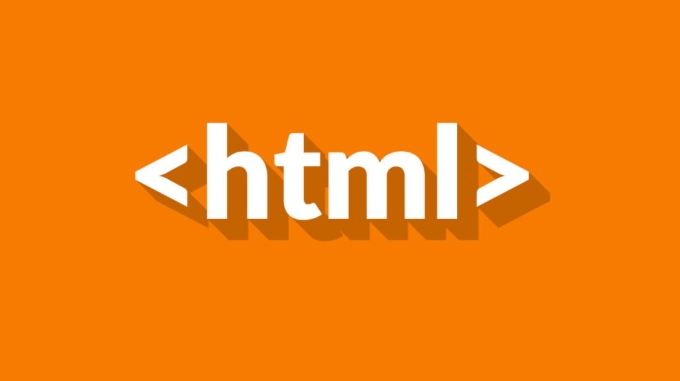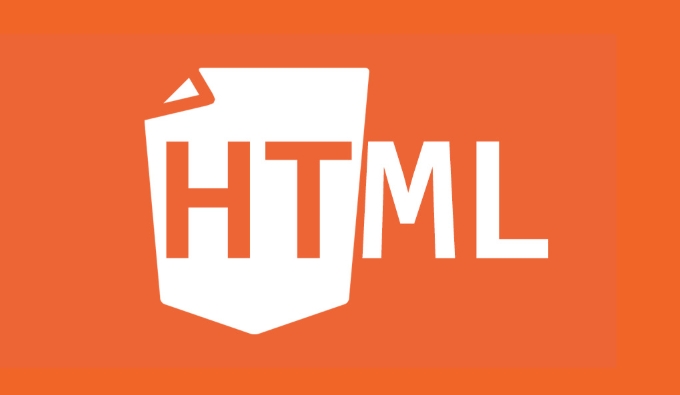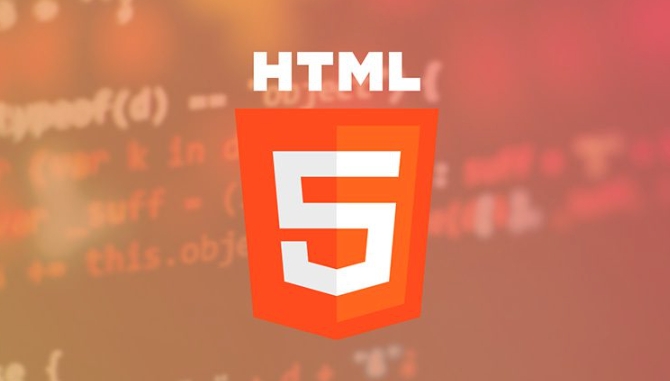Writing Effective Alt Text for Images in HTML for Accessibility
Jul 06, 2025 am 12:42 AMAlt Text is an attribute used in HTML to describe the content of an image. Its core function is to allow people who cannot see the image to understand its meaning. There are several principles to follow when writing Alt Text: 1. Be concise and clear, convey core information; 2. Describe the content rather than the form; 3. Adjust the description according to the context; 4. Avoid duplication and redundancy. For specific types of pictures such as charts, pictures in links, complex images, etc., Alt Text should be more specific or adjusted according to the purpose. Common errors include writing too general, replacing descriptions with file names, stacking keywords, and ignoring decorative images that should leave blank Alt attributes.

Writing Alt Text for HTML pictures is the most basic and critical part of web accessibility. Many people know to add the alt attribute, but not many people actually write it effectively. A good alt description allows visually impaired users to understand the image content and also provides useful information when the image fails to load.

What is Alt Text?
Alt text is an attribute of the <img src="/static/imghw/default1.png" data-src="https://img.php.cn/upload/article/000/000/000/175173376629497.jpeg" class="lazy" alt="Writing Effective Alt Text for Images in HTML for Accessibility" > tag in HTML that describes the content or function of the picture. Its core function is to allow people who cannot see the picture to understand its meaning .

for example:
<img src="/static/imghw/default1.png" data-src="dog.jpg" class="lazy" alt="A yellow labrador retriever running on the grass">
In the example above, the alt text clearly describes the image content. If the image cannot be displayed, or the user uses a screen reader, he or she can obtain key information through this text.

Not all images require detailed descriptions. Some pictures are only decorative, in which case you can leave blank alt attribute:
<img src="/static/imghw/default1.png" data-src="decoration.png" class="lazy" alt="">
How to write a valid Alt Text?
There are no fixed formulas for writing alt text, but there are several general principles that can help you write a more practical description:
- Concise and clear : It doesn't take too long, as long as it can convey the core information of the picture.
- Describe content rather than form : for example, don’t say “red button in the picture”, but just say “submit button”.
- Adjust according to the context : The same image may be placed on different pages and different alt descriptions may be required.
- Avoid duplication and redundancy : For example, if there is already text description next to the picture, you don’t need to repeat the alt again.
For example, if you have a product picture, it appears on the product details page:
<img src="/static/imghw/default1.png" data-src="shoes.jpg" class="lazy" alt="Black sneakers with white sole and blue stripes">
This description is more helpful than just writing "shoes".
What situations should be paid special attention to?
Some image types require more alt and need to be more careful when processing.
1. Charts and data visualization
This type of picture has a lot of information, and alt needs to briefly summarize the content of the chart, and sometimes it also needs to provide more details with the hidden text area.
For example:
<img src="/static/imghw/default1.png" data-src="chart.png" class="lazy" alt="The bar chart shows sales in the four quarters of 2023 were 1.2 million, 1.5 million, 1.7 million and 2 million respectively">
2. Pictures in the link
If the image itself is a link, the alt text should indicate the target after clicking, rather than just describing the image content.
For example, a "Return to Homepage" icon:
<a href="/"><img src="/static/imghw/default1.png" data-src="home-icon.png" class="lazy" alt="Back to Home"></a>
3. Complex images or works of art
If it is an artistic picture used for display, alt can appropriately add descriptive language to emphasize visual elements and atmosphere.
For example:
<img src="/static/imghw/default1.png" data-src="sunset.jpg" class="lazy" alt="The sunset is setting, orange and purple intertwined on the sea">
Some of the easiest mistakes to make
Many people will fall into some common pitfalls when writing alt text. The following should be paid special attention to:
- ? The writing is too general, such as "picture", "photo", "this thing";
- ? Treat the file name as alt, such as "IMG_1234.jpg";
- ? Using alt to pile keywords for SEO will affect the barrier-free experience;
- ? Forget decorative pictures, you also need to clear the alt, otherwise you will be read out and disturb the user.
It is actually not difficult to solve these problems, just remember one thing: alt is for people who cannot see the pictures. Think from their perspective and you will know how to write.
Basically that's it. Writing alt text is not complicated, but it is indeed easy to be ignored. Taking some time to write carefully will help the user experience much more than you think.
The above is the detailed content of Writing Effective Alt Text for Images in HTML for Accessibility. For more information, please follow other related articles on the PHP Chinese website!

Hot AI Tools

Undress AI Tool
Undress images for free

Undresser.AI Undress
AI-powered app for creating realistic nude photos

AI Clothes Remover
Online AI tool for removing clothes from photos.

Clothoff.io
AI clothes remover

Video Face Swap
Swap faces in any video effortlessly with our completely free AI face swap tool!

Hot Article

Hot Tools

Notepad++7.3.1
Easy-to-use and free code editor

SublimeText3 Chinese version
Chinese version, very easy to use

Zend Studio 13.0.1
Powerful PHP integrated development environment

Dreamweaver CS6
Visual web development tools

SublimeText3 Mac version
God-level code editing software (SublimeText3)

Hot Topics
 Explain the purpose of the role attribute in ARIA.
Jun 14, 2025 am 12:35 AM
Explain the purpose of the role attribute in ARIA.
Jun 14, 2025 am 12:35 AM
ARIA's role attribute is used to define the role of web elements and improve accessibility. 1. Role attribute helps assistive technology to understand the functions of elements, such as buttons, navigation, etc. 2. Use role attributes to assign specific roles to non-semantic HTML elements. 3. The role attribute should be consistent with the element behavior and be verified by the accessibility tool test.
 HTML and Design: Creating the Visual Layout of Websites
Jun 14, 2025 am 12:39 AM
HTML and Design: Creating the Visual Layout of Websites
Jun 14, 2025 am 12:39 AM
How to create a website layout? 1. Use HTML tags to define the content structure, such as, ,. 2. Control styles and positions through CSS, using box model, float or Flexbox layout. 3. Optimize performance, reduce HTTP requests, use cache and optimize images, and ensure responsive design.
 How can you ensure your HTML code is readable and maintainable?
Jun 10, 2025 am 12:06 AM
How can you ensure your HTML code is readable and maintainable?
Jun 10, 2025 am 12:06 AM
Improve the readability and maintainability of HTML code can be achieved through the following steps: 1. Use semantic tags, such as, etc. to make the code structure clear and improve SEO effect; 2. Keep the code formatted and use consistent indentation and spaces; 3. Add appropriate comments to explain the code intention; 4. Avoid excessive nesting and simplify the structure; 5. Use external style sheets and scripts to keep the HTML concise.
 How do I stay up-to-date with the latest HTML standards and best practices?
Jun 20, 2025 am 08:33 AM
How do I stay up-to-date with the latest HTML standards and best practices?
Jun 20, 2025 am 08:33 AM
The key to keep up with HTML standards and best practices is to do it intentionally rather than follow it blindly. First, follow the summary or update logs of official sources such as WHATWG and W3C, understand new tags (such as) and attributes, and use them as references to solve difficult problems; second, subscribe to trusted web development newsletters and blogs, spend 10-15 minutes a week to browse updates, focus on actual use cases rather than just collecting articles; second, use developer tools and linters such as HTMLHint to optimize the code structure through instant feedback; finally, interact with the developer community, share experiences and learn other people's practical skills, so as to continuously improve HTML skills.
 How do I use the element to represent the main content of a document?
Jun 19, 2025 pm 11:09 PM
How do I use the element to represent the main content of a document?
Jun 19, 2025 pm 11:09 PM
The reason for using tags is to improve the semantic structure and accessibility of web pages, make it easier for screen readers and search engines to understand page content, and allow users to quickly jump to core content. Here are the key points: 1. Each page should contain only one element; 2. It should not include content that is repeated across pages (such as sidebars or footers); 3. It can be used in conjunction with ARIA properties to enhance accessibility. Usually located after and before, it is used to wrap unique page content, such as articles, forms or product details, and should be avoided in, or in; to improve accessibility, aria-labeledby or aria-label can be used to clearly identify parts.
 How do I create a basic HTML document?
Jun 19, 2025 pm 11:01 PM
How do I create a basic HTML document?
Jun 19, 2025 pm 11:01 PM
To create a basic HTML document, you first need to understand its basic structure and write code in a standard format. 1. Use the declaration document type at the beginning; 2. Use the tag to wrap the entire content; 3. Include and two main parts in it, which are used to store metadata such as titles, style sheet links, etc., and include user-visible content such as titles, paragraphs, pictures and links; 4. Save the file in .html format and open the viewing effect in the browser; 5. Then you can gradually add more elements to enrich the page content. Follow these steps to quickly build a basic web page.
 How do I create checkboxes in HTML using the element?
Jun 19, 2025 pm 11:41 PM
How do I create checkboxes in HTML using the element?
Jun 19, 2025 pm 11:41 PM
To create an HTML checkbox, use the type attribute to set the element of the checkbox. 1. The basic structure includes id, name and label tags to ensure that clicking text can switch options; 2. Multiple related check boxes should use the same name but different values, and wrap them with fieldset to improve accessibility; 3. Hide native controls when customizing styles and use CSS to design alternative elements while maintaining the complete functions; 4. Ensure availability, pair labels, support keyboard navigation, and avoid relying on only visual prompts. The above steps can help developers correctly implement checkbox components that have both functional and aesthetics.
 What is an HTML tag?
Jun 13, 2025 am 12:36 AM
What is an HTML tag?
Jun 13, 2025 am 12:36 AM
HTMLtagsareessentialforstructuringwebpages.Theydefinecontentandlayoutusinganglebrackets,ofteninpairslikeand,withsomebeingself-closinglike.HTMLtagsarecrucialforcreatingstructured,accessible,andSEO-friendlywebpages.






